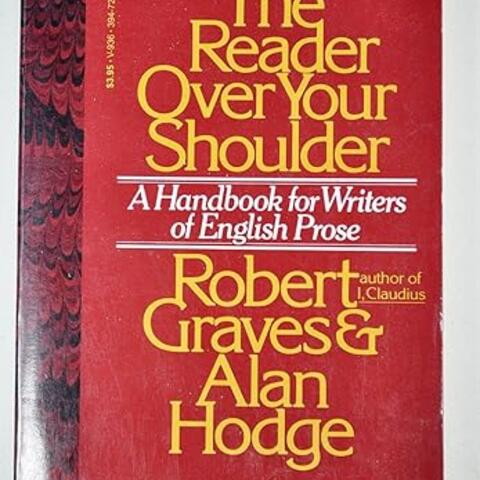Reading Between the Leaves: The Importance of Being a Good Reader
Notes from a Writer's Desk

I recently found myself sitting by a window, staring off into the distance as the dwindling burnt-orange leaves from a sugar maple fluttered to the ground in slow succession. Soon, the branches will be completely bare, waiting to be coated by the season’s first snowfall. From my angle and with the tree nearly devoid of its seasonal cover, I could see what I had not been able to see prior to that moment: the remnants of a robin’s nest, abandoned some time ago. My eyes had no doubt fallen upon that tree before, but it was only with the proper perspective that I was able to spot something new and to gain a fuller picture of the ecosystem directly in front of me.
At first, I had only seen a part of what was there. What was on the surface did not tell the full story of what was embedded beneath. However, when the façade began to fade, something deeper revealed itself. To be sure, I could have inferred that the tree would harbor a bird’s nest, but it would have been a guess, not a statement of absolute knowledge. That intuition became something more only because I was paying attention, taking the time to observe from different perspectives. Reading a text involves a similar process of deciphering: we need to look closely from both near and far to piece together the layers and to arrive at a knowledge judgment that goes beyond a mere hunch.
Not long before, I had watched a talk by Leslie Valiant on his most recent book, The Importance of Being Educable. A celebrated professor of computer science and applied mathematics, Valiant takes a computational approach to cognition and arrives at a compelling theory. It is not intelligence, Valiant declares, but educability that sets the human brain apart, allowing us to absorb and process information at an extraordinary level and ultimately to create civilizations. Yet our cognitive processing also comes with a flaw: while we can acquire massive amounts of information, we are decidedly weaker at evaluating whether that information is accurate, and thus are inherently vulnerable to propaganda.
As a student and teacher of language and literature, I couldn’t help but think about the value of good reading in making just such judgments; if this skill is not innate to our brain, then it is exactly what the humanities train us to do. In a way, without realizing it, Valiant makes the case for the humanities. Reading texts not merely to acquire information but to interpret that information, to judge the message, occurs on multiple levels. On the one hand, we should grant close attention to basic lexical and syntactical choices, but on the other, we should step back and consider the bigger context, compare and contrast competing claims.
It is not just text, but subtext, that matters. This lesson was the key that unlocked my own study of medieval and Renaissance poetry, and in particular, the poetry of Petrarch. An individual composition might tell us one thing, but when that composition is read beside other compositions within the same collection, as well as beside other texts altogether—both by Petrarch and by other authors—a deeper meaning emerges. To be a good reader means not merely to examine the surface, but to excavate the layers and find meaning across them—to engage in archaeological hermeneutics, to borrow Thomas Greene’s phrase from The Light in Troy. Good reading, as Petrarch well understood from his absorbing of the classics, is the foundation of good writing, teaching us how to build a story to convey what we want to convey to our readers. A good writer knows how to construct layers, how to embed critical markers that carry and advance meaning—for example, the recurrence of a particular word or concept, the connotation of which is likely to evolve as the story advances.
The skill of reading with attention, with discernment, is as important today as ever, not merely because of the proliferation of mis- and disinformation, but also because of the continual integration of AI into our everyday lives as well as our research methods. While AI can be a powerful tool, relying on its abilities to summarize texts for us strips us of an essential intellectual act: reading carefully and picking out on our own what is meaningful and worth discussing. Without this step, we risk falling into a reductive echo chamber. Innovative thinkers possess great imagination, but they also are great readers of the texts that precede them. AI can read at a scale that we cannot, and thus can facilitate the research process, but it is not conscious of the effort and contextual influence behind human choice or the weight of an individual word.
When we read texts, as when we write them, we should remind ourselves that authors, try as they might to mask their subjective voice (the logic of which is a discussion for another day), always imbue something of themselves into the writing and always make choices, even at a lexical level. A text is never born ex nihilo, nor is it ever purely epistemological; it emerges through a process and in a spatiotemporal context. Writing is as much an existential as an epistemological act, but a text is also inherently dialogic. A text, in other words, is and should be human(istic). If we acknowledge this premise, then we are far more likely to ponder the validity of the “knowledge” or “theory” being proposed. Attention to the praxis of communicating helps us not only to read and evaluate, but to write well in our own subsequent work.
Writing, as any form of communication, is ultimately about telling a story. Storytelling privileges, overtly or subtly, a particular point of view. To return to the image with which I began, from one perspective, I was watching a story about the transition from fall to winter; from another perspective, a story about the melancholy beauty of autumn; and from yet another one, a story about a family of robins. While each of these could be interwoven into a layered narrative, altering the angle just slightly impacts what the reader readily sees, and perhaps, what they believe to be true. As humans, we have intellectual capacities that are both privileged and flawed, but we also have the opportunity to grow as communicators and readers: of text, subtext, and ultimately of the world around us.
Ready to book an appointment with FWC staff? Access the FWC intake form.
Get the Latest Updates
Join Our Newsletter
Subscribe to Colloquy Podcast
Simplecast




